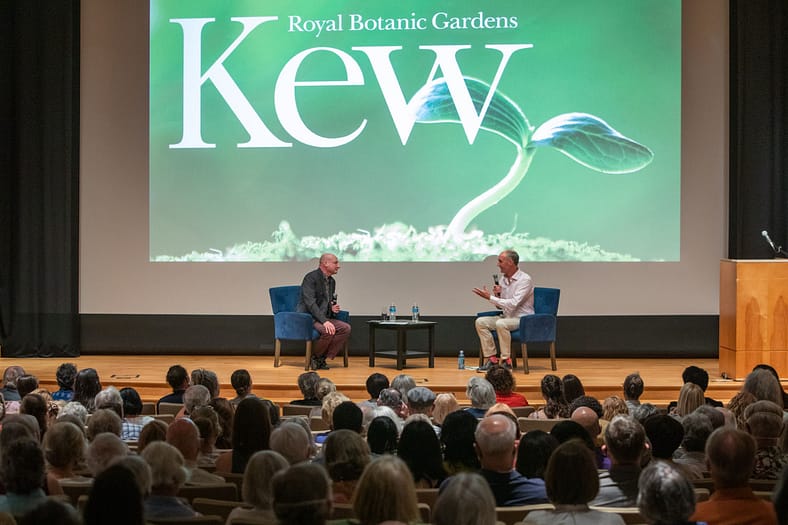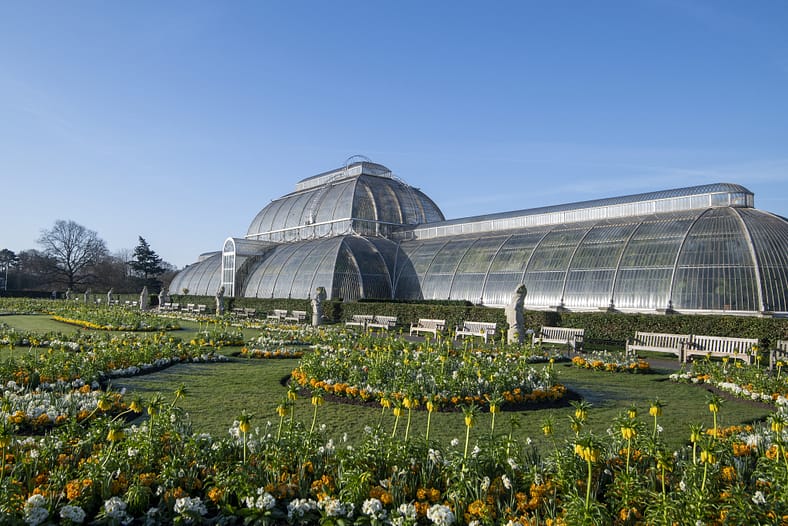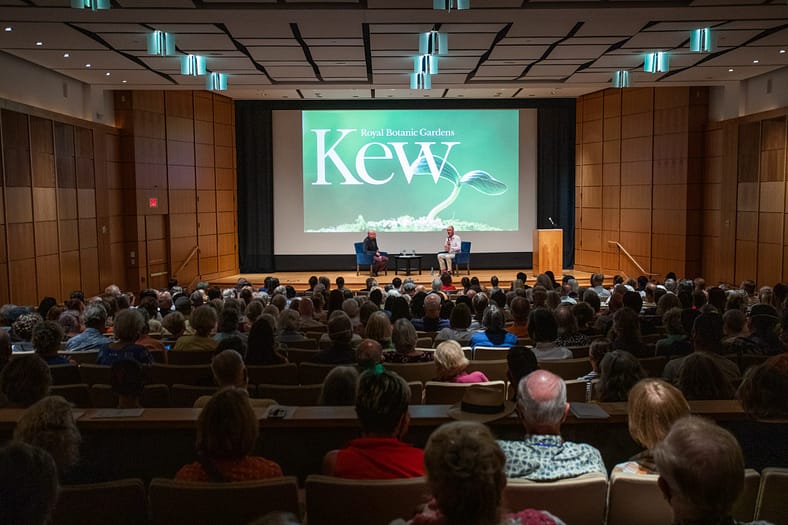Richard Deverell, Director of Royal Botanic Gardens, Kew, comes to Portland

On July 31, the Japan Institute of Portland Japanese Garden and Portland Art Museum co-presented a lecture by Richard Deverell, Director of Royal Botanic Gardens, Kew in London. Speaking in front of a full house at Portland Art Museum’s Whitsell Auditorium, Deverell spoke to how Kew, one of the largest and most acclaimed gardens in the world, has transformed itself since he was hired as Director in 2012 in light of a changing planet.
As the climate crisis accelerates into dangerous new territory, Deverell discussed how its consequences imperils flora and fauna. “Unfortunately, we live in an age of extinction,” Deverell warned. “Some people think that’s melodramatic language, but the scientists don’t. The evidence supports this assertion. One in five species faces extinction.” Keeping in mind this looming specter, Deverell spoke to his organization’s mission of using science to protect biodiversity, inspire current and future generations to protect the natural world, and make previously complex and highly technical information more engaging and relevant to the public.

The Royal Botanic Gardens, Kew has approached the problem of a warming planet with a variety of solutions. This has included tracking plant life and banking seeds of wild vegetation to preserve biodiversity and improving their centuries-old property to lessen its environmental footprint. Kew has also built spaces that incorporate both nature and art to educate and motivate visitors into greater planetary consciousness including an “evolution” garden that explains how plants are genetically related and immersive new art installations like The Hive, which recreates life inside a beehive. “I believe that art can be an incredibly powerful way of communicating messages,” Deverell shared. “You can appeal to heart as well as head. You can reach different sorts of audiences.”

Noting that Kew is funded, in part, by the British government, Deverell shared that the organization has a moral obligation to become more accessible and thus is striving to work toward a more equitable future with directives such as reduced admission costs for those on government assistance and having conversations that acknowledge the garden’s colonial and exploitive origins.
“We’re very aware, extremely aware, of the importance of gardens as places of reflection, of dialogue. Nature calms people. Nature helps people to reflect upon life and humanity. It’s a great setting to do those things.”
Richard Deverell
After his lecture concluded, Deverell was joined on stage by Japan Institute and Portland Japanese Garden CEO, Steve Bloom, for a conversation. Bloom commended Deverell his “transformational” leadership of Kew, a massive, centuries-old organization that might not otherwise change without the dedication and vision of the stewards at its helm today. Deverell noted that while the first four years of his tenure were challenging, something that helped was developing simple answers to the questions of “What do we do?” and “Why does it matter?” In doing so, a framework was established that allowed his colleagues to better understand their roles and weather criticism from those less willing to have the Royal Botanic Gardens, Kew evolve.

After touching on how Kew seeks partnerships in both the botanical garden and arts sectors, Bloom discussed how the Japan Institute of Portland Japanese Garden and Royal Botanic Gardens, Kew have a shared goal of peace. Deverell noted how this pursuit will be explored further on December 6th, 2022, when the Japan Institute and Kew will partner together to host Peacemaking at the Intersection of Culture, Art, and Nature, a Peace Symposium being held in London, England.
“We’re delighted to be partnering with this big Symposium that’s planned for early December in London,” Deverell noted. “We’re very aware, extremely aware, of the importance of gardens as places of reflection, of dialogue. Nature calms people. Nature helps people to reflect upon life and humanity. It’s a great setting to do those things.”
